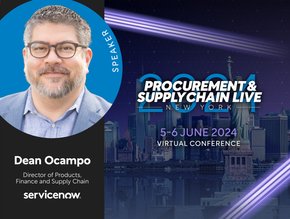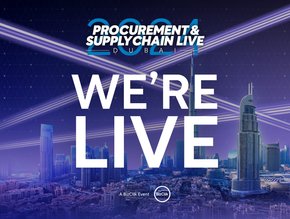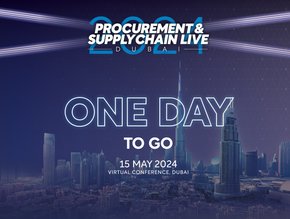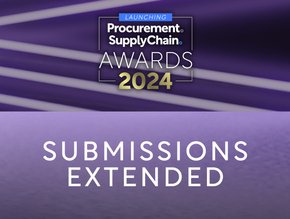DHL & Schneider Electric Initiative is SAF Scope 3 Boost

A key element for businesses looking to cut Scope 3 carbon emissions in their supply chains is to support the development of sustainable aviation fuel (SAF).
SAF is a biofuel with similar properties to conventional kerosene-based jet fuel but with a smaller carbon footprint. Although demand for SAF is increasing, the global supply is unable to keep pace.
According to figures from the International Air Transport Association (IATA) – the trade association for the world's airlines – SAF fuel production in 2022 accounted for just 0.1% of the overall volume of jet fuel.
But on a brighter note, IATA does say that output of SAF has grown five-fold over the past three years, and that this is “indicative of robust demand”.
For supplies to grow, IATA says “investment in SAF needs to be accelerated to support the demand coming from international, regional, national policies and airline commitments”.
DHL & Schneider Electric in SAF initiative
A new initiative between DHL partners and Schneider Electric is exactly what IATA is hoping to see more of.
DHL Global Forwarding, the freight arm of DHL Group, is partnering with energy solutions specialist Schneider Electric to design the air cargo industry’s first multimodal SAF shipping model.
For many organisations, air freight is a core part of the global supply chain. A big problem is that air freight emits more carbon than sea freight -- and while SAFs reduce carbon impact, they are significantly more expensive than conventional jet fuel.
So Schneider’s solution is to introduce intermodal ‘bridges’, using both sea and air freight.
By using sea freight in conjunction with air freight on particular routes, companies can make savings, which are then used to purchase SAFs, further reducing carbon emissions.
While multimodal shipping is widely used in the supply chain industry to support business continuity this is the first time it has been used to reduce a company’s Scope 3 carbon emissions.
Schneider Electric and DHL Global Forwarding’s new pilot schemes has seen DHL deploy two multimodal ‘SAF bridges’ using a combination of air and sea transport, between Singapore and North America and between India and North America.
In total, Schneider Electric plans to design eight further bridges with its logistics partners that can be deployed on demand.
Schneider estimates that such bridges reduce carbon emissions of these regional shipment lanes by up to 40% compared to normal air fulfilment.
Orders are delivered with agility and flexibility, either by air freight or multimodal shipping, depending on capacity, air surges, margins, customer offers, and stock availability.
Building on this end-to-end capability, the model is further enhanced with DHL Global Forwarding offering the use of SAF via its GoGreen Plus service, leading to the delivery path being up to 90% carbon-neutral and self-sustaining.
This gives Schneider Electric the agility to plan, decide, procure, execute, and govern the model, achieving a more resilient and agile supply chain.
Another organisation that is helping increase production of SAFs is the Sustainable Aviation Buyers Alliance (SABA). This is driving investment in SAF and, it says, “supporting companies, airlines and freight customers in achieving their climate goals”.
Meta among multinationals backing SABA
Among those backing SABA are:
- Air cargo carriers, including UPS and United Airlines,
- Professional services companies including Bain & Company, Deloitte and McKinsey
- Technology giants, including Meta, Microsoft and Google
Those who are signed up to SABA are committed to decarbonising their supply chains, and see SAF as an opportunity to make progress here.
Meta, for example, has been backing SABA since 2021, and procures SAF directly from airline partners.
Meta is the fifth-biggest tech company globally, and decarbonising business travel emissions is a critical part of the company's bid to reach net-zero value chain emissions by 2030.
“The SAF we procure is certified by accredited third parties that provide independent verification of the carbon intensity reductions," says Blair Swedeen, Meta Director of Global Sustainability.
He adds: “As part of our commitment to reach net zero emissions across our value chain, we are proud to contribute to a roadmap for sustainable aviation. It is a vital part of our goal to reach net zero emissions.”
******
Check out the latest edition of Supply Chain Digital and also sign up to our global conference series: Procurement & Supply Chain 2024. Supply Chain Digital is a BizClik brand.
- Hapag-Lloyd on path to Zero-Emission Shipping through ZEMBASustainability
- PostNL’s bid to make its Transport Network more SustainableSustainability
- GXO: Helping Virgin Media O2 cut down on Single-Use PlasticsSustainability
- Supplier Collaboration Key to Johnson & Johnson Climate PushSustainability






